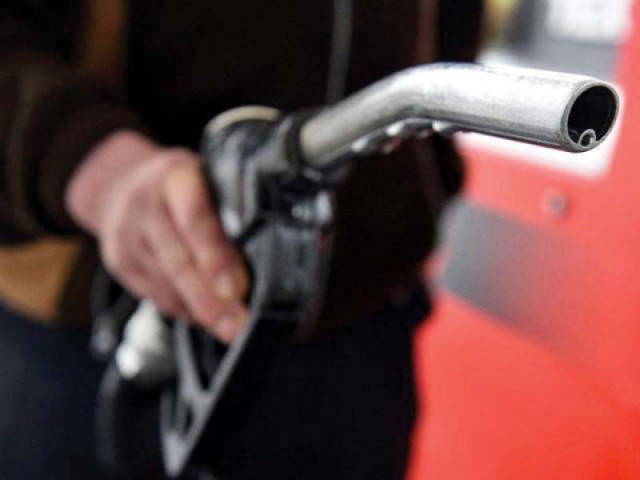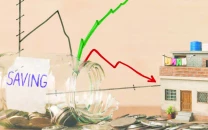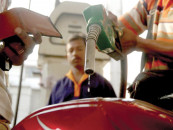OGRA proposes Rs7.06 per litre cut in petrol price
Recommendation in line with decrease in global crude prices

Recommendation in line with decrease in global crude prices. PHOTO: FILE
However, the regulator has proposed a slight increase of Rs0.05 in the price of high-speed diesel (HSD) from Rs80.10 to Rs80.15 per litre, which is mainly used in transport and agriculture sectors.
The meagre increase in the HSD price may have no impact on the inflation rate, which will directly benefit the public. With the start of crop harvesting season, the demand for diesel has increased, prompting the government to lift the ban on imports.
Ogra has proposed that petrol prices should be slashed from Rs81.58 to Rs74.52 per litre for June 2020. The fuel is mainly used in cars and motorcycles.
The regulator has suggested a reduction of Rs11.88 in the price of kerosene oil from Rs47.44 to Rs35.56 per litre. Kerosene is used for cooking, especially in far-flung areas where liquefied petroleum gas (LPG) or pipeline gas is not available.
In the price of light diesel oil (LDO), a reduction of Rs9.37 has been recommended from existing Rs47.51 to Rs38.14 per litre. LDO is used in industrial units.
Government charges 17% general sales tax (GST) on all petroleum products. Apart from that, it collects petroleum levy on the sale of these products.
At present, the government is charging Rs30 per litre in petroleum levy on HSD, Rs23.76 per litre on petrol, Rs18.02 on kerosene oil and Rs11.18 on LDO.
According to an official, Ogra has sent its summary to the Petroleum Division, which will forward it to the finance ministry for approval. The government will take decision on price revision after seeking consent of Prime Minister Imran Khan.
During the tenure of previous Pakistan Muslim League-Nawaz (PML-N) government, the petroleum levy was charged in the range of Rs3 to Rs10 per litre, but GST was higher than the current rate.
As GST is shared with provinces, the current federal government has slashed the sales tax and hiked the petroleum levy in a bid to collect more revenue for the Centre to meet its high expenditure requirement.
Since the Pakistan Tehreek-e-Insaf (PTI) government has come to power in August 2018, the prices of petroleum products have gone up in the wake of rupee’s depreciation against the US dollar. This has also fuelled inflationary pressure in the country.
Pakistan is a net importer of petroleum products and meets almost 85% of needs through imports.


















COMMENTS
Comments are moderated and generally will be posted if they are on-topic and not abusive.
For more information, please see our Comments FAQ